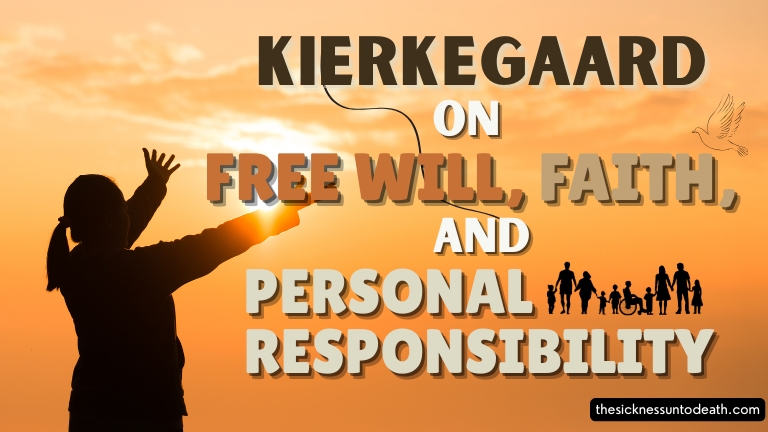In an age of uncertainty and endless choices, many people struggle with decision-making, accountability, and the weight of personal responsibility. Søren Kierkegaard, the Danish philosopher and theologian, offers a compelling perspective on free will, faith, and the necessity of taking responsibility for one’s own life. His insights, particularly in The Sickness Unto Death, provide guidance for those wrestling with self-doubt, existential anxiety, and the burden of choice.
Free Will and the Anxiety of Choice
Kierkegaard argued that free will is both a gift and a source of existential anxiety. He saw choice as an essential part of human existence, but also as a burden that many try to escape. The modern world, with its limitless options and constant distractions, often leads individuals to avoid responsibility by blaming circumstances, external forces, or societal pressures. Yet, Kierkegaard insisted that true freedom requires embracing one’s own decisions, no matter how daunting they may be.
Faith as a Path to Authenticity
For Kierkegaard, faith was not just a belief in God but a commitment to living truthfully and authentically. He criticised the tendency of individuals to rely on external validation rather than confronting their inner struggles. True faith, he argued, involves a ‘leap’—a decisive act of trust in the face of uncertainty. This leap is essential for anyone seeking to move beyond fear and take full ownership of their choices.
Avoiding Despair Through Personal Responsibility
Kierkegaard saw despair as a fundamental human condition—one that arises when individuals refuse to take responsibility for their existence. He described different forms of despair, from refusing to acknowledge one’s true self to feeling paralysed by the fear of making the wrong choice. The solution, he suggested, is to actively engage with one’s own freedom, recognising that responsibility is not a burden to escape but a path to deeper meaning and self-realisation.
Applying Kierkegaard’s Insights Today
In a world where decision fatigue, comparison culture, and fear of failure are prevalent, Kierkegaard’s philosophy offers a practical framework for reclaiming personal agency:
- Own Your Choices – Avoid shifting blame or waiting for external validation. Your life is shaped by the decisions you make.
- Embrace the ‘Leap of Faith’ – Whether in career, relationships, or spiritual belief, take decisive steps even when certainty is impossible.
- Accept That Anxiety is Part of Freedom – The fear of making the wrong choice is natural, but it should not prevent action.
- Seek Depth Over Superficiality – Move beyond distractions and surface-level commitments to build a life of substance and meaning.
- Reflect on Existential Responsibility – Engage in honest self-examination to align your actions with your core beliefs.
Further Reading on Kierkegaard’s Thought
Kierkegaard’s reflections remain deeply relevant for those struggling with modern dilemmas of faith, freedom, and responsibility. To explore these ideas further, check out The Sickness Unto Death: A Modern Translation for the 21st Century at www.thesicknessuntodeath.com.
Free will is both liberating and terrifying. Kierkegaard challenges us to confront our choices with courage, to embrace faith as a transformative force, and to take responsibility for our lives. In doing so, we step closer to authenticity, meaning, and true freedom.

